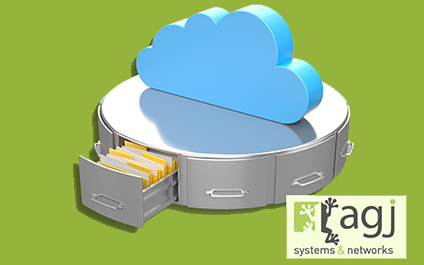
Picture this: We began collaboration with a client who shared with us an array of technical challenges plaguing their office. Surprisingly, data backups weren't on the list of issues they wanted help with. The client had recently invested a significant $20,000 in a new server that was specifically intended to host their data backups. Because of this hefty investment, they were quite confident about their data protection strategy.
As part of our standard procedure, we performed a comprehensive assessment of their systems and discovered an alarming fact: despite their heavy investment in this new server, it had not executed any data backups for over a year. The server itself was functioning perfectly, but it wasn’t carrying out it’s primary duty – performing data backups.
When this was brought to the client's attention, frustration ensued. Their software vendor had been entrusted with overseeing all backups, a task for which they were compensated. Upon closer examination of their contract, however, we discerned that the vendor was only responsible for "software maintenance". The vendor's commitment was to set up the initial backup but did not extend to its monitoring or management.
The contract stipulated that the client's own IT staff were to shoulder the responsibility for monitoring and managing daily backups. This misunderstanding underscored a major flaw in their backup approach: Without regular monitoring, backups could lapse without detection, exposing the business to potential data loss.
Yet, another concern was the risk posed by natural disasters such as hurricanes or fires, which could potentially obliterate all of their data, regardless of the flawless operation of their backup system. To their good fortune, they were spared the wrath of Hurricane Katrina, but had they not been, the situation could have been catastrophic. Now, besides maintaining local data backups, they've adopted a more secure and reliable approach by backing up their invaluable data to the cloud.
Reflecting on this case study, it's evident that many businesses often overlook critical aspects of data backup strategies, which exposes them to substantial risks. We have consistently identified four recurring problems.
THE FOUR BIGGEST BACKUP PROBLEMS WE SEE & HOW TO PREVENT THEM
-
No Backup
The absence of any backup is a significant threat to businesses. Data is the lifeblood of modern companies, housing everything from financial records to client databases. Without backups, you stand to lose it all in the blink of an eye due to a sudden hardware failure, cyber-attack, or natural disaster. The consequences are grave, ranging from interrupted business operations to irreparable reputational damage. Even worse, statistics show that many businesses, small businesses in particular, never recover from major data loss if they don’t have a disaster recovery plan in place.
Preventive Steps:
The first step is acknowledging the importance of data backups for business continuity. Make it a policy to regularly back up all critical data. Small businesses can start with simple manual backups to external drives or cloud storage. For larger organizations or those with critical data needs, hiring a professional IT consultant or partnering with a firm like AGJ Systems can ensure that you establish a comprehensive, automated, and secure backup system.
-
Non-Functioning Backup
Having a non-functioning backup system is as good as having no backup at all. The danger here is the false sense of security. You believe you're protected until you face a data loss situation and discover the backups you're counting on don't exist or aren't accessible. The result is the same—unplanned downtime, lost business, and the costly process of recreating or recovering the lost data, if it's even possible.
Preventive Steps:
Regularly testing your backups ensures they're functioning as intended. Make it a routine to perform a "test restore" to verify the reliability of your backup system. For more extensive IT setups, consider a managed IT service provider who can monitor your backups continuously, perform regular tests, and troubleshoot any issues promptly.
-
Local Backup Only
While local backups are a good start, they aren't foolproof. They safeguard against some data loss causes like accidental deletion or device failure, but they're vulnerable to physical threats. Natural disasters, fires, theft, or severe hardware damage could destroy both your primary data and the local backups. The loss can be absolute, leading to an inability to resume normal business operations.
Preventive Steps:
Adopt a hybrid approach to backups. In addition to local backups, use offsite or cloud backups that ensure data safety even when local data is destroyed or inaccessible. A professional IT consultant or managed IT services can help assess your data needs, suggest reliable cloud backup solutions, and help set up an automated, redundant backup system.
-
File-Based (or “File Only”) Backup
File-based backups are limited because they only backup individual files, not system settings or application data. While they're useful for recovering accidentally deleted files, they fall short in larger-scale data loss scenarios. Restoring an entire system from a file-based backup is time-consuming and often incomplete, resulting in longer downtime and loss of productivity. If you're using databases or specific applications, file-based backups may not be enough.
Preventive Steps:
Incorporate a full-system backup, also known as an image-based backup, into your data protection strategy. This type of backup captures a snapshot of your entire system, including system settings, software applications, and all data. This allows for a quicker and complete restore of your IT environment in case of a catastrophic failure. It's wise to work with IT professionals or cybersecurity experts like those at AGJ to set up an efficient, fully-rounded backup system that caters to all your data protection needs.
Fortunately, in our client's case, we identified and addressed the issues promptly, establishing a robust backup solution that keeps their business resilient to any disaster that might hit the Gulf Coast. The client now enjoys an active and careful management of their data, ensuring zero data loss. With our Backup and Disaster Recovery Service, they can rest easy knowing their data can be restored swiftly, keeping their business running smoothly even in the face of disaster.
Preventing data disasters in your business requires a thorough understanding of backup strategies and solutions. The cybersecurity experts at AGJ Systems can assist in identifying and addressing your backup needs.
If you're looking to protect your valuable data and ensure business continuity, reach out to us and take the first step towards robust data security.




